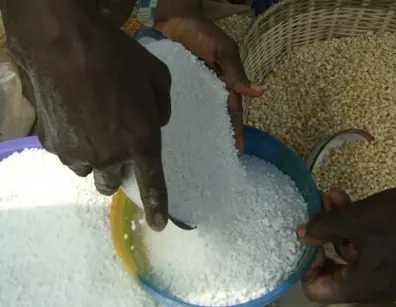Dr Terry Mabbett concludes his meeting with Chris Okeke who discusses non-competitive seeds, input and output markets, as well as the real role for smallholders
In the previous issues, Chris Okeke, large-scale farmer and agricultural entrepreneur, told African Farming why Nigeria is so far from feeding itself and set out some of the hard facts and figures underpinning the gap between its food consumption and home-grown production.
Easier access to credit and improved infrastructure will not solve the third problem, which is low productivity caused by limited access to high yielding varieties expressing full potential under Nigerian conditions.
“We don’t have exactly the same problem with cassava, compared to rice, maize and soya, because cassava planting material is vegetative ‘sticks’ or cuttings,” says Chris. “But we still need investment to produce the material on the massive scale required, which means it all comes back to money.”
Actual amount is important, but so is the way it is targeted, says Chris, returning to the theme of contemporary aid and development programmes for Africa and how, in spite of good intentions, they adversely affect input and output markets in agriculture.
“For the most part they are designed around small peasant farmers with repercussions for commercial farmers in supply of inputs,” he says, using the supply of soluble fertilisers and pesticides to illustrate his arguments.
Agrichemicals are invariably supplied in half litre plastic bottles for small farmers, which almost require a supporting plastic recycling project simply to clear up the waste packaging.
Packaging soluble nutrients or pesticide in half litre plastic bottles is fine for lots of small farmers using portable knapsack sprayers, but totally inappropriate for large-scale broad acre farms like those belonging to Chris Okeke.
“Agrichemical manufacturers would not dream of supplying large farms in Europe and North America in this way so why make an exception for Africa. Why do intelligent scientists and businessmen and their organisations keep on making the same old mistakes in their dealings with African agriculture, decade after decade?” Chris asks.
“Whatever the motivation they should sit down and work on the problem with those on the ground in Africa who know about the nature and extent of problems faced. Otherwise it is a complete waste of my time,” says Chris.
A classic case in point is multinationals trying to establish a supply and a market for cassava starch, which Chris Okeke understands first hand.
To continue reading the rest of this article, please see the lastest issue of African Farming





